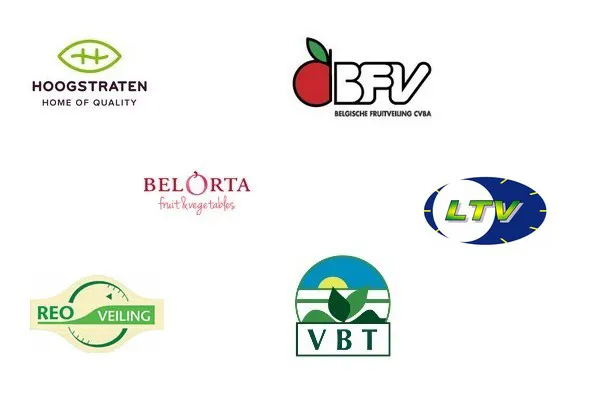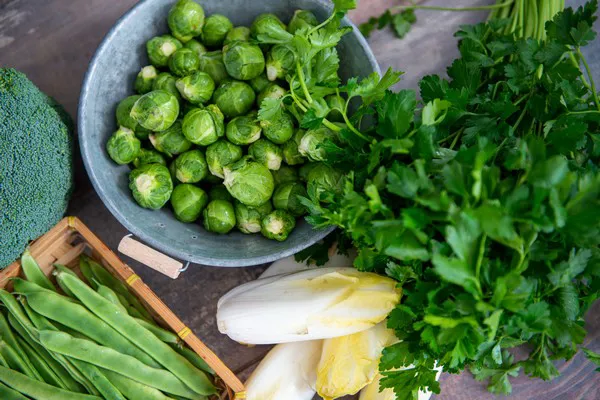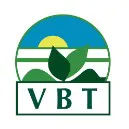Belgium has always been a country of cooperatives. Names like BelOrta, Coöperatie Hoogstraten, LTV, REO Veiling, and BFV ensure that supply has become increasingly centralized in recent years. The upcoming BelOrta/BFV integration in July only reinforces that. But what is the strength of the cooperative, and why is Belgium unique in this?
"Most Belgian cooperatives are more than 80 years old," begins Luc Vanoirbeek of the Belgian Horticultural Cooperatives Federation (VBT). "So, I think, from a historical perspective, we've been a country of cooperatives for a long time, which also creates confidence among growers. However, cooperatives must keep developing every day."
"When I joined the VBT Board of Directors as an observer in 2007, there were about eight cooperatives in Flanders. These days, there are four. That proves these institutions are still very much appreciated in our country. The organizations are also growing in size," says Luc.
"We were recently asked to consider what lies at the core of our fruit and vegetable cooperatives' core. What's our DNA? That's how we ended up with five words to denote Flemish fruit and vegetable cooperatives. These are elements we'll always have to safeguard to maintain trust."
Five core values
According to Luc, the first of these values is offering surety. "That encompasses several areas. For example, cooperatives must guarantee constant high quality. But also product availability, food safety, and logistical performance. And a fair sales system and further sustainability in the sector," Luc continues.
"I think an organized institution is stronger in this than growers individually entering the market or wanting to bring about changes in the sector. Together, on a large scale, you can guarantee reliable, continuous delivery of the various benefits the market wants."
"Secondly: collaboration. A cooperative is a group of growers who voluntarily work together. That provides a kind of solidarity, letting people help each other in, for instance, knowledge sharing or sustainability. Or taking steps together regarding innovation. Here, you shouldn't forget each person's emphases. However, I'm convinced these can only be strengthened through an organization," says Vanoirbeek.
"Also, we believe cooperatives are strong in the market and affect sector changes. You can create a certain reliability among traders and growers because you have a large, diverse supply for the entire food chain and can respond to market trends. It gives extra clout to assure growers of good earnings. You have this clout in the area of change too. You can drive research into innovation and automation in the industry. Growers often run into similar problems, and as a cooperative, you can quickly identify and respond to those."

Lastly, Luc wants to highlight the keyword: 'Care'. "The elements mentioned above mainly consider trade and cultivation. These purely practical aspects are obviously vital. But as important is the human factor, social welfare. And I think cooperatives are at least as responsible for this as for the trade segment," he says.
"I don't necessarily mean coddling growers, but removing some of their concerns and being involved in companies' ups and downs. Horticulture and agriculture remain economic activities, so individual growers must have solutions and their affairs in order. But we, as a cooperative, can support the collective. A cooperative is about more than gathering and selling produce."
Must not become a number
This last core value is also one of the cooperatives' greatest challenges. Cooperatives have many advantages, Luc points out, but as the large ones become ever-bigger, there is a danger that growers will feel like numbers. It was also a major concern among growers during the BelOrta/BFV integration negotiations. "That's indeed a significant concern for the cooperatives. If growers become numbers, we're doing it wrong. We must always remain attentive to different growers' individual challenges," he explains.
"That's a difficult task; companies are becoming greatly diversified. Go back a few generations, and they were all similar, size and produce-wise. Nowadays, you must consider very specific farms; large and small scale, conventional or organic, etc. There's an enormous variety. I think we have to work at it every day to keep growers' trust through transparent management and ensuring everyone knows where they stand. It's a challenge to deal with that well, but I think the Flemish cooperatives are doing that well," Luc states.

That is also why these cooperative organizations, as he calls them, are still so prominent in Flanders. Nowhere in Europe do these seem as concentrated as in Belgium. "I think that's also down to the historical point of view. Our history backs us, so growers trust cooperatives. The size and strength let us make attractive offers to growers. It's a matter of believing you'll benefit from a cooperative."
"And Belgian growers believe that, more so than in many other countries. That's not necessarily bad; the other growers opt for other choices. They're more trade-driven and deal directly with the market. We're different. We bet on the total supply, and our growers seem to appreciate that. I, thus, foresee a future in cooperatives, but the task is always to keep working on trust, never taking it for granted," concludes Luc.
 For more information:
For more information:
Luc Vanoirbeek
VBT
Email: info@vbt.eu
Website: www.vbt.eu
